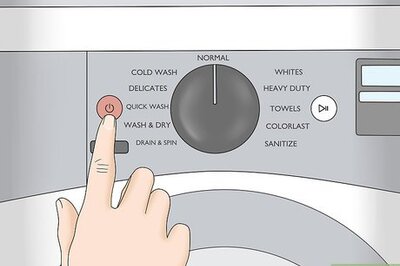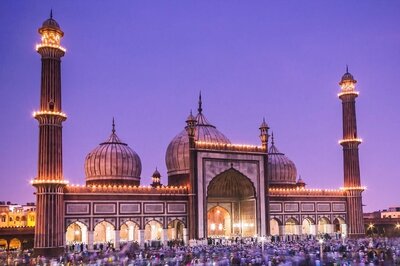
views
One of the false expectations with which couples approach marriage is the belief that they will forever be committed to the relationship. I can’t imagine any two people being that committed — unless they are exceptionally stupid! In life, no one person can ever help you learn all your lessons or fulfil your every need.
One of the purposes of marriage is to expand one’s identity, from the ego to infinity. The ocean of cosmic awareness, which is god, has projected little waves of itself to become the myriad manifestations of worlds, atoms, rivers, you and me. We seem to separate from that great reality only as long as we concentrate on our own separateness from it.
Imagine the wave on the ocean endowed with a personality. Also imagine that in concentrating on its own separate and special reality it decides that its own, alone of all realities in the universe, is meaningful to it. Think of the wave therefore protruding itself further from the ocean in an effort to dominate all the surrounding waves.
In doing so, it sets itself in conflict with other waves; for these, too, similarly inflated with their own self-importance, want to dominate one another. As conflict builds among the many self-seeking waves, pain, fear and suffering develop as well.
There is no escape from suffering as long as one seeks his escape through the ego. The way to liberation lies in withdrawing the ego-wave back into the ocean. One must realise that the cosmic ocean is the greater reality.
Anything that helps us break out of the confines of selfishness is good for us. And since marriage is a means whereby man learns to expand his sense of personal identity, it has a much higher purpose than mere selfish fulfillment.
Marriage becomes, however, a barrier to that purpose if it allows to stand in the way of further expansion. ‘Us four and no more’ was the way Paramhansa Yogananda described the mental wall people tend to place around their little homes, shutting the vast universe out of their lives.
To those who seek the higher fulfillment of spiritual union, marriage should not be seen as a cozy self-enclosure, but as a window to a greater reality.
For worldly people, marriage represents a reinforcement of egoism—an attempt to buttress one’s own sense of security and self-worth. But for those spiritual people, marriage represents a reinforcement of their efforts at self-expansion.
Worldly people think, “What can I derive from this relationship?” Spiritual people think, “What can I give to this relationship?” When I refer, then, with seeming glibness to ‘worldly’ and ‘spiritual’ people, please understand that my purpose is not to direct your attention to individuals, but rather to specify directions in your growth.
The more your sympathies expand outward, the greater will be your own true fulfillment. And the more you allow those sympathies to shrink inward and focus on ‘I and mine,’ — you will be filled with a gnawing sense of insufficiency in life.
An emphasis on universality, however, is not for those who have not learned to be loyal. The husband who thinks, “The whole universe is mine, why then be faithful to my wife?” is not yet refined enough in his perception of truth to be ready for soul-expansion, which is the only way out of egoism.
Marriage is in no way a panacea; it is what you do with marriage and, for that matter, with any human condition that determines whether your progress will be towards greater freedom or toward an increase of delusion.




















Comments
0 comment